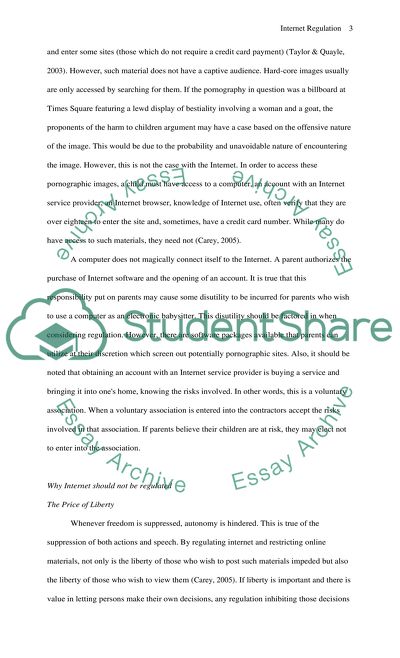Cite this document
(“Internet regulation : Should the federal government be allowed to Research Paper”, n.d.)
Retrieved from https://studentshare.org/family-consumer-science/1416394-internet-regulation-should-the-federal-government
Retrieved from https://studentshare.org/family-consumer-science/1416394-internet-regulation-should-the-federal-government
(Internet Regulation : Should the Federal Government Be Allowed to Research Paper)
https://studentshare.org/family-consumer-science/1416394-internet-regulation-should-the-federal-government.
https://studentshare.org/family-consumer-science/1416394-internet-regulation-should-the-federal-government.
“Internet Regulation : Should the Federal Government Be Allowed to Research Paper”, n.d. https://studentshare.org/family-consumer-science/1416394-internet-regulation-should-the-federal-government.


